Cue the Worry
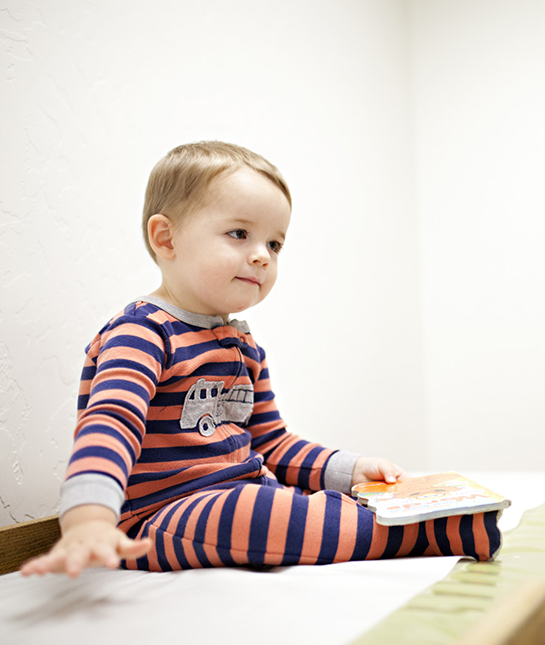
Few things have the potential to cause more anxiety in moms and dads than milestones. Somehow, our children are expected to grow and learn according to a schedule, and we start to worry when our kids don't adhere to that schedule. "Comparison is the thief of joy," recites Dr. Andrew Irwin, a pediatrician from Tennessee. "When a mother comes into our office asking about her kid and compares him or her to a sibling or neighbor, the biggest advice we can offer is to stop comparing. When we stop seeing gradual progress is when concerns may arise, but each child is different and may not follow the same path." Read on to see what Dr. Irwin shared with us regarding the most commonly asked questions about milestones.
Sleep

When will my baby sleep through the night?
Once babies are 3 or 4 months old and weigh over 10 pounds, most are ready to sleep through the night. It is safer for babies to sleep alone in the crib, instead of co-sleeping. I recommend working toward goals of self-soothing, allowing him/her to cry for periods of time, and providing emotional support for each parent while doing so.
Sitting Up
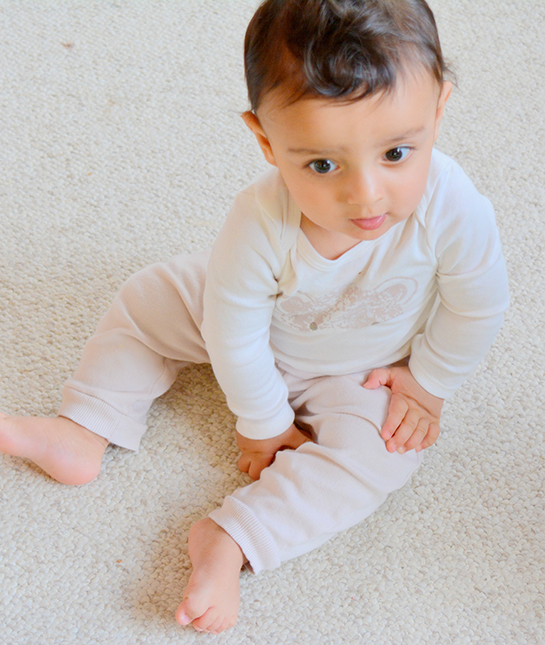
My baby is 6 months old and isn't sitting. Is she behind schedule?
We ask about sitting up at the 6-month checkup, but a lot of babies are not yet sitting up on their own at this age. We want them to be sitting with support. If they aren't sitting up by the 9-month checkup, your pediatrician will evaluate other related milestones.
Crawling
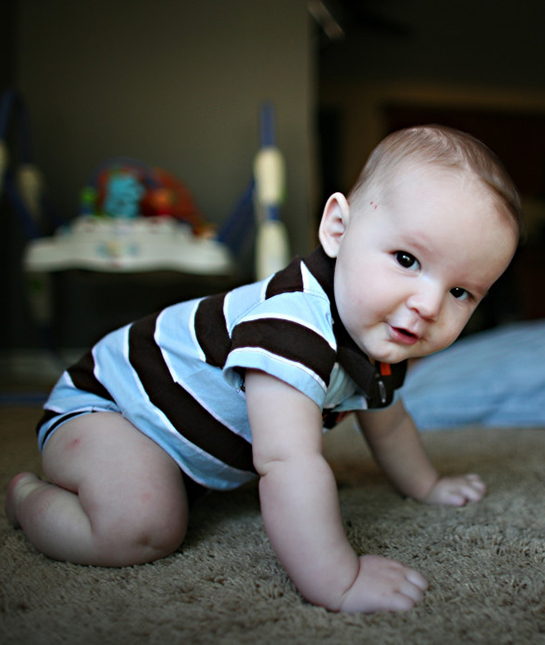
My baby is on the move! Are there restrictions to where I let them crawl?
When your child is around 6 months old—and before they start to crawl—I recommend parents crawl around on the floor, all over the house! When you're standing up, you cannot always see below the dishwasher, refrigerator or couch. However, your little one will soon find all these treasures, such as paper clips, 5-year-old gummy bears, nails, screws, etc. Before they are crawling, crawl around the house and start babyproofing by cleaning up a little bit.
Starting Solids
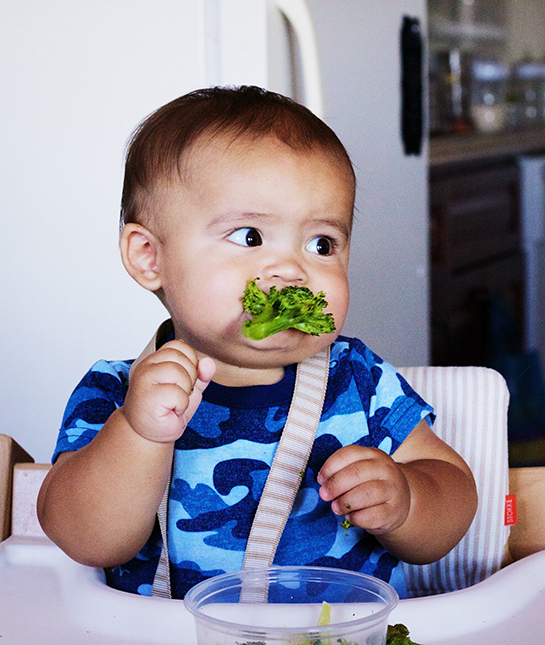
We recommend at minimum waiting until around six months to introduce food to your child. Signs that they are ready for it include your baby holding up her head, opening his mouth in anticipation of food and sitting well with support, and if he or she has nearly doubled their birth weight—which often occurs around months 4 to 7.
Standing
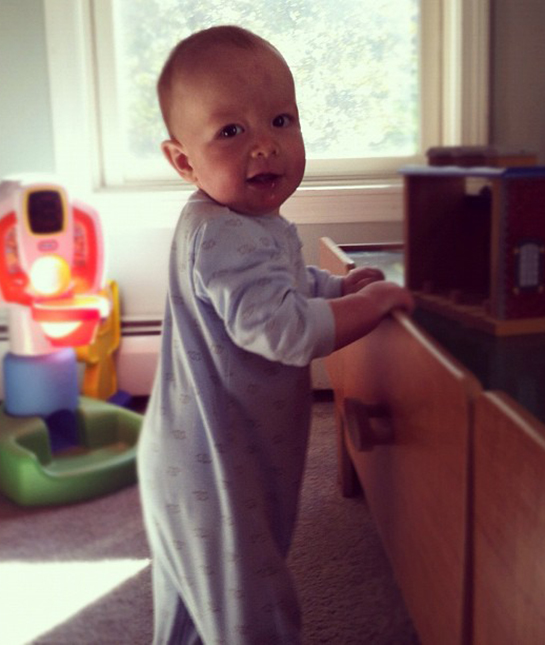
When should my baby start standing on his own?
Some babies can stand with assistance at 6 months; most children can stand on their own by 12 months. If you have concerns about this, remember to discuss your concerns at your 6-, 9- and 12-month checkups. Shortly after babies start standing, they begin to cruise around the furniture.
Car Seats
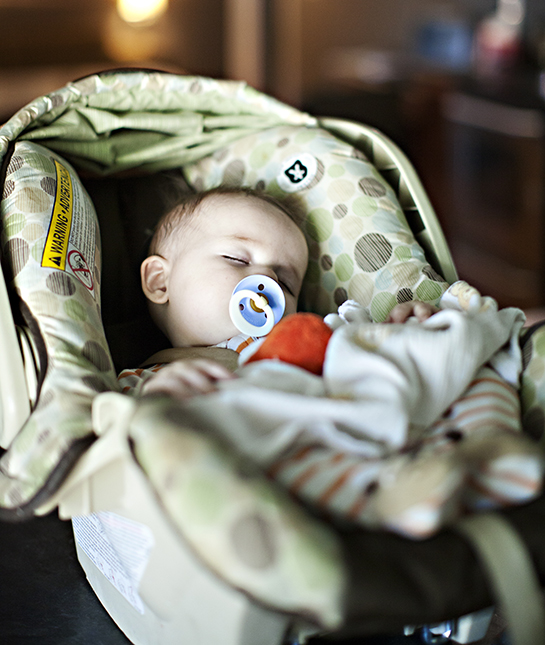
When can my child move out of a rear-facing car seat? My kid's legs are too long/They're uncomfortable/They cry while traveling, etc.
I hear from many parents who are eager to move their kid up early in everything—a big no when it comes to car seats. Unless the kids are past the weight and height limits of the seat, we recommend sticking to the recommendations of the American Academy of Pediatricians, which means the children should remain rear-facing until age 2. As advanced as your kid may seem in language or development, rear-facing children's seats are best for muscle development and safety.
Fevers
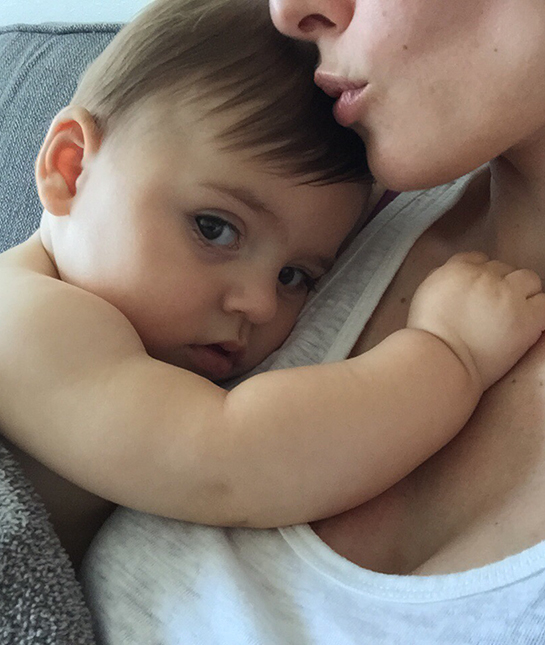
When should I call the doctor for my child's fever?
A fever is one of the most common concerns and often the first symptom that parents call about. When a child has a fever, it's his body's way of reacting to some foreign virus or germs. It's our body's first defense against a cold. I'm often more concerned with a child with a low fever and other symptoms, like lethargy or vomiting, than I am a child with a high fever who is acting normally. It's a myth that a higher fever means a child is sicker. Controlling the fever and monitoring for other symptoms are the most important steps. We see children in the office with fever of temperatures of 105+ on occasion. The number doesn't mean one child is necessarily "sicker" than the other.
Walking
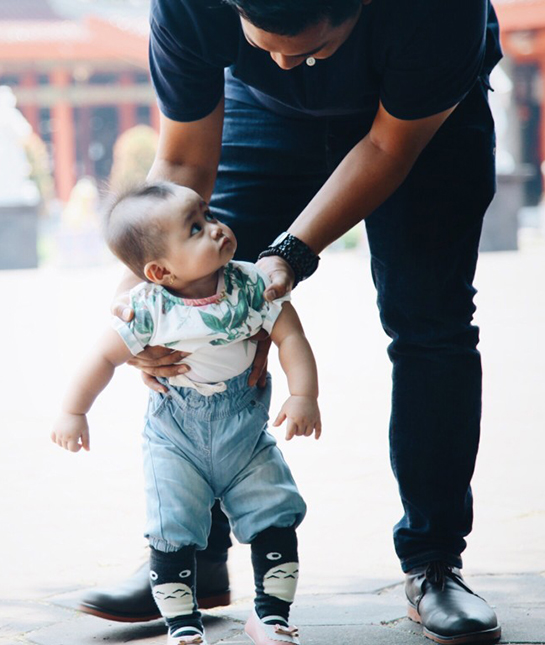
Why is my child still crawling when other children her age are walking?
Occasionally, we see babies as young as 8 months walking with little to no assistance. However, some babies are not walking even at 15 to 17 months. Most walk around the time of the first birthday. They often need something enticing (toy, grandmother, food or milk) to let go of the table, chair or furniture, and walk for the first time.
Sometimes, a small toy in each hand will give them a sense of balance and security. Don't compare your children to your friends' children or even your OWN children. Give your child the opportunity and challenge to walk—and they will when they are ready.
Talking
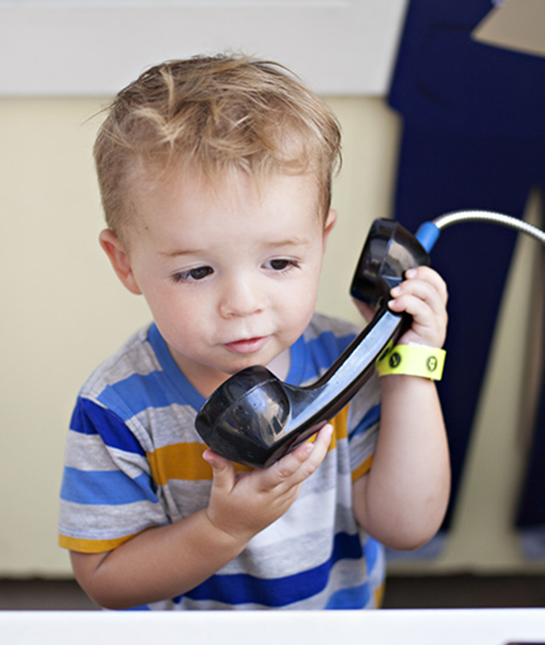
My son isn't talking like my friends' kids did at this age. Is this a problem?
Speech concerns are prevalent in our office, but the biggest piece of advice we can offer is DON'T COMPARE. Don't lose sleep comparing your child's speech to your friends. We like to see steady progress in terms of new words added to your little one's vocabulary. However, we have some general guidelines at each age for what kinds of words and how many words most children at a specific stage should be saying. Some estimate that one in 10 to 20 children have some communication delays. If you can tackle this issue sooner rather than later, the outcomes are much better.
In Tennessee and many other states, if a parent is concerned about their child's speech, there are free evaluations to assess for speech delay (and you don't need a physician referral). My son ended up needing some speech therapy—I say that because, for some reason, many parents attach a stigma to speech delay. However, MANY children need speech therapy for a brief period of time.
Weaning
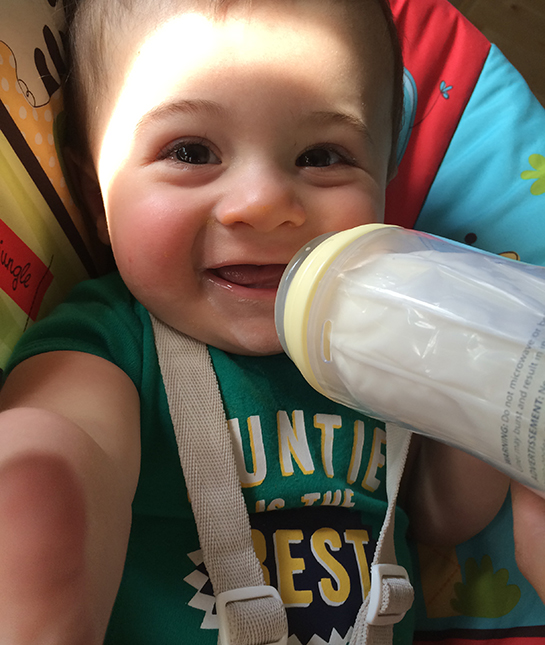
Which breastfeeding sessions should I eliminate first when weaning?
For some mothers, abrupt weaning occurs due to circumstances. However, gradual weaning is ideal. Start by reducing the number and length of breastfeeding sessions. The early morning or bedtime sessions are often the last ones to give up, as mid-day sessions are easier to drop as your child spends most of that time trying to destroy and mess up your house.
Potty Training
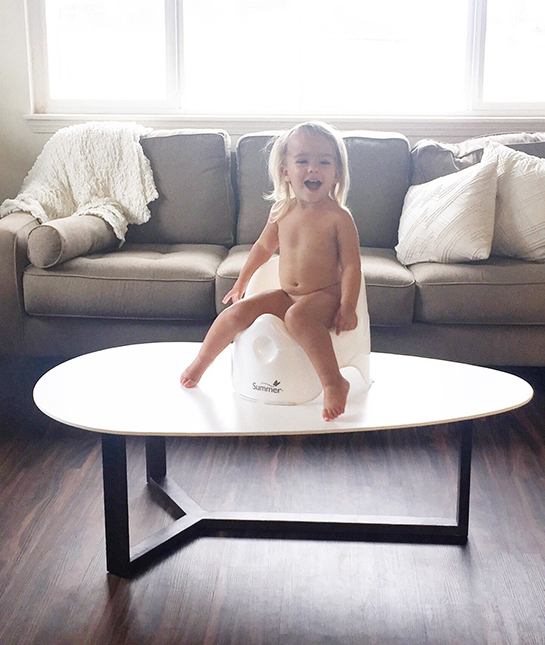
How strict should I be about potty training?
We often have parents come to us who are concerned that their children become defiant when it comes to potty training. I remind parents that children don't have much control in their lives. As parents, we are responsible for deciding what's for dinner, what time is bathtime, which clothes to wear, when we go to the store, etc. When children sense they have control over something, they are eager to remain in control, and that can come across as defiance. Seize the windows of opportunity when they show interest (between 22 and 32 months) and reward them while letting them remain in control. Offer incentives to encourage the behavior.
MORE: Potty Training 101
Bedwetting

Is my child the only one that wets the bed at his age?
One in every 6 kindergartners wet the bed at night.
Five percent of 10-year-olds wet the bed at night.
And 1-2 percent of teenagers wet the bed at night.
If your child wets the bed, you are not alone. However, neither children nor parents discuss this issue when they are eating lunch with their friends. Know you're not alone. This can derive from a number of causes, including constipation, and your pediatrician can help rule out those causes to eliminate the issue.
Readiness for School
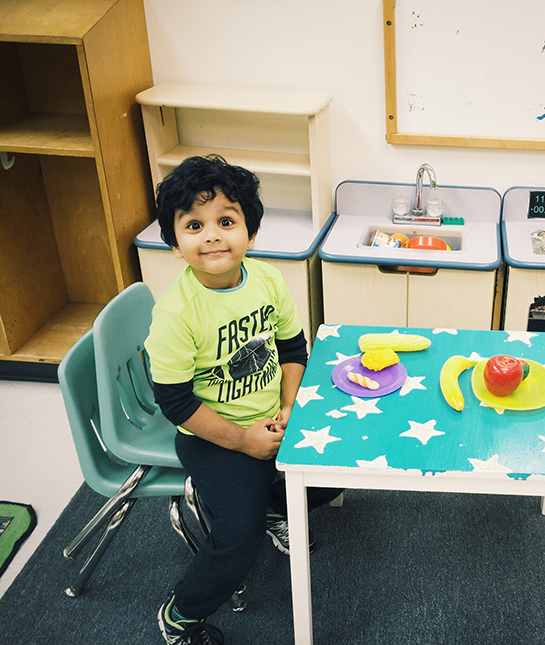
How can I help my child become ready to start school?
Three qualities that are necessary for children to be ready for school are intellectual skills, motivation to learn, and strong social-emotional capacity and support. Your pediatrician can evaluate and discuss any issues or concerns at your annual checkups before you start school. As parents, 1) read and play with them, 2) offer positive rewards for success and likewise negative reinforcement (removing toys and timeout) for breaking rules, 3) try to adhere to routines/times for play, sleeping and meals, and 4) shower them with love.




